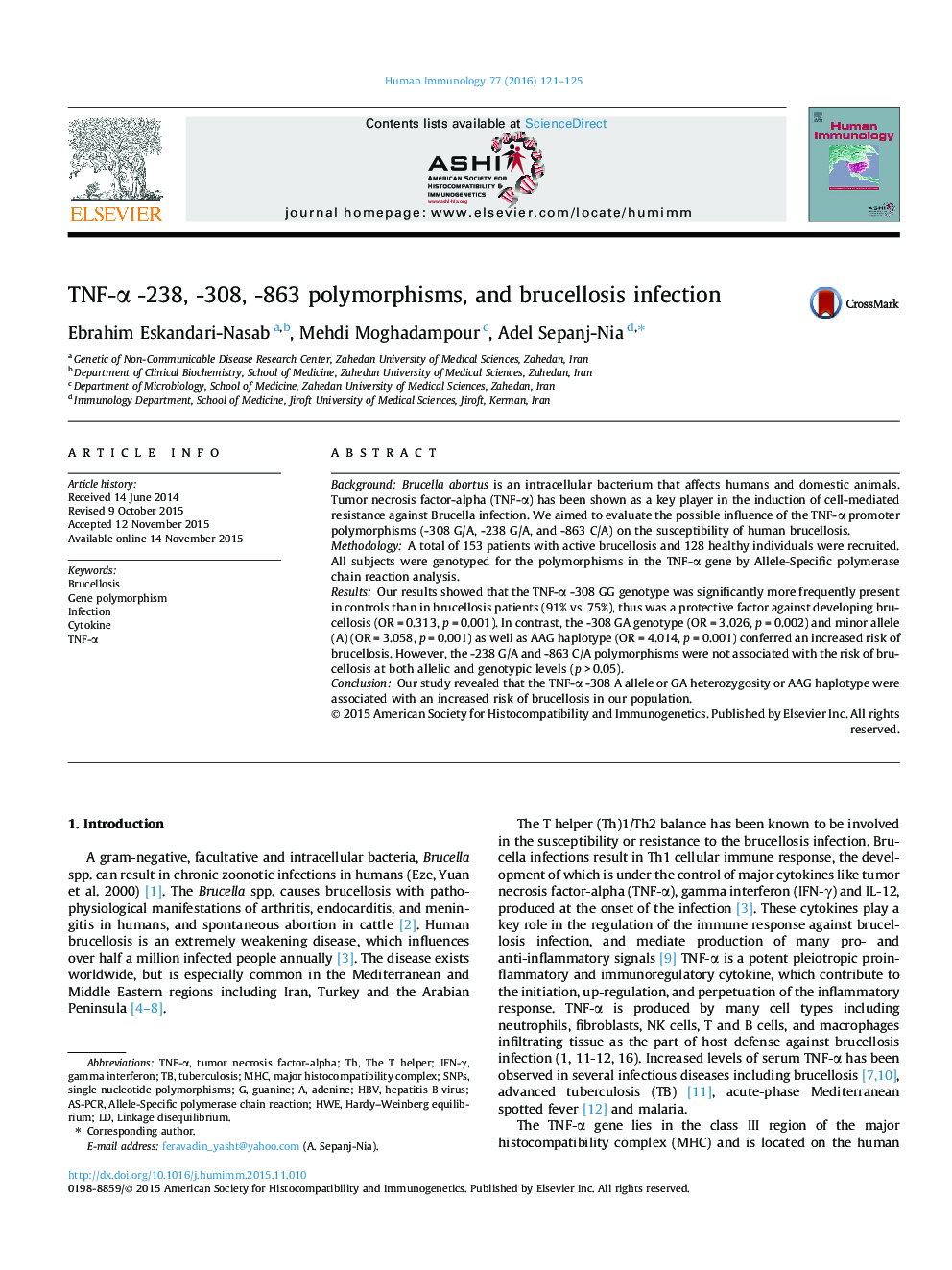| Article ID | Journal | Published Year | Pages | File Type |
|---|---|---|---|---|
| 3349548 | Human Immunology | 2016 | 5 Pages |
BackgroundBrucella abortus is an intracellular bacterium that affects humans and domestic animals. Tumor necrosis factor-alpha (TNF-α) has been shown as a key player in the induction of cell-mediated resistance against Brucella infection. We aimed to evaluate the possible influence of the TNF-α promoter polymorphisms (-308 G/A, -238 G/A, and -863 C/A) on the susceptibility of human brucellosis.MethodologyA total of 153 patients with active brucellosis and 128 healthy individuals were recruited. All subjects were genotyped for the polymorphisms in the TNF-α gene by Allele-Specific polymerase chain reaction analysis.ResultsOur results showed that the TNF-α -308 GG genotype was significantly more frequently present in controls than in brucellosis patients (91% vs. 75%), thus was a protective factor against developing brucellosis (OR = 0.313, p = 0.001). In contrast, the -308 GA genotype (OR = 3.026, p = 0.002) and minor allele (A) (OR = 3.058, p = 0.001) as well as AAG haplotype (OR = 4.014, p = 0.001) conferred an increased risk of brucellosis. However, the -238 G/A and -863 C/A polymorphisms were not associated with the risk of brucellosis at both allelic and genotypic levels (p > 0.05).ConclusionOur study revealed that the TNF-α -308 A allele or GA heterozygosity or AAG haplotype were associated with an increased risk of brucellosis in our population.
